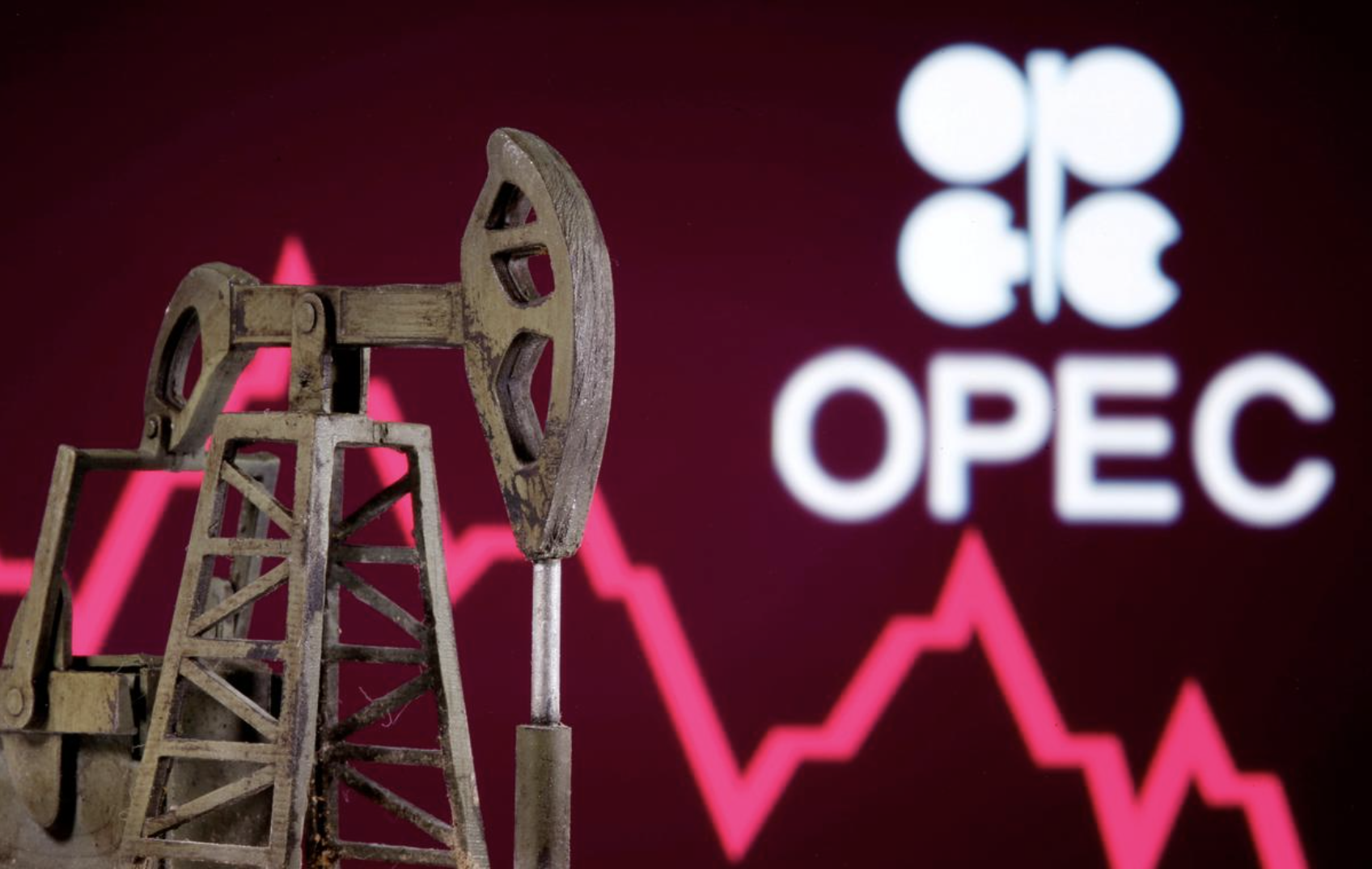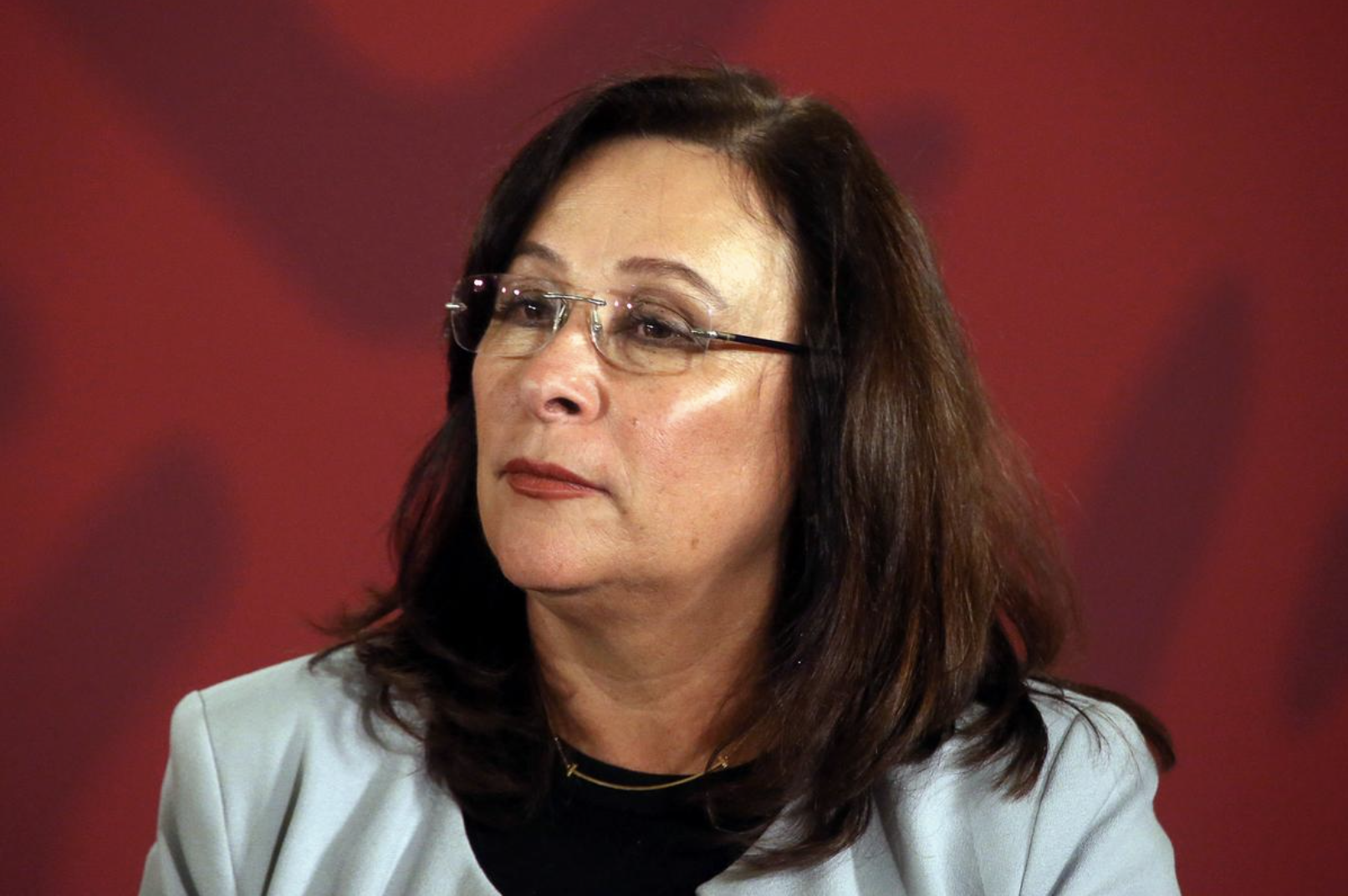
A 3D printed oil pump jack is seen in front of displayed stock graph and OPEC logo in this illustration picture, April 14, 2020. /Reuters
A 3D printed oil pump jack is seen in front of displayed stock graph and OPEC logo in this illustration picture, April 14, 2020. /Reuters
OPEC, Russia and allies agreed on Saturday to extend record oil production cuts until the end of July, prolonging a deal that has helped crude prices double in the past two months by withdrawing almost 10 percent of global supplies from the market.
OPEC+ had initially agreed in April that it would cut supply by 9.7 million barrels per day (bpd) during May-June to prop up prices that collapsed due to the coronavirus crisis. Those cuts were due to taper to 7.7 million bpd from July to December.
It also demanded countries such as Nigeria and Iraq, which exceeded production quotas in May and June, compensate with extra cuts in July to September.
Iraq's oil ministry spokesperson Assem Jihad said in a statement that Baghdad had "renewed its full commitment to the OPEC+ deal.
"Despite the economic and financial circumstances that Iraq is facing, the country remains committed to the agreement," Jihad said.
Saturday, ministers of the cartel and outside nations like Russia met via video conference to adopt the measure, aimed at cutting out the excess production depressing prices as global aviation remains largely grounded due to the pandemic.
The decision came in a unanimous vote, UAE Energy Minister Suhail al-Mazrouei wrote on Twitter. He called it "a courageous decision and a collective effort deserving praise from all participating producing countries."

Mexico's Energy Minister Rocio Nahle attends a news conference at the National Palace in Mexico City, Mexico, December 9, 2019. /Reuters
Mexico's Energy Minister Rocio Nahle attends a news conference at the National Palace in Mexico City, Mexico, December 9, 2019. /Reuters
Mexico to sit out the extension
However, Mexican Energy Minister Rocio Nahle announced on Saturday, that the country will not join other top oil producers in the extension.
Mexican President Andres Manuel Lopez Obrador, who has vowed to ramp up the country's crude oil production, said on Friday that Mexico was not in a position to make additional cuts on top of what it had agreed in April.
"There are other countries that extended their cuts to July, in this case we said no, we'll stick to the agreement that we signed in April," she told reporters in the eastern state of Veracruz. "There's no problem."
Mexico's unwillingness to go as far as other OPEC+ countries in making output cuts had caused friction with Saudi Arabia in April. Agreement was reached later, after Mexico said the United States would help make up the difference.
The worst is over
The oil market was already oversupplied when Russia and OPEC failed to agree on output cuts in early March. Analysts say Russia refused to back even a moderate cut because it would have only served to help U.S. energy companies that were pumping at full capacity. Stalling would hurt American shale-oil producers and protect market share.
Russia's move enraged Saudi Arabia, which not only said it would not cut production on its own but said it would increase output instead and reduce its selling prices in what became effectively a global pricing war.
Prices collapsed as the coronavirus pandemic largely halted global travel. On April 21, U.S. crude oil futures collapsed below zero for the first time in history.
Crude oil prices have been gaining in recent days, in part on hopes OPEC would continue the cut. International benchmark Brent crude traded Saturday over 42 U.S. dollars a barrel. Brent had crashed below 20 U.S. dollars a barrel in April.
However, danger still lurks for the market. Algerian Oil Minister Mohamed Arkab, the current OPEC president, warned attendees that the global oil inventory would soar to 1.5 billion barrels by the mid-point of this year.
"Despite the progress to date, we cannot afford to rest on our laurels," Arkab said. "The challenges we face remain daunting."
That was a message echoed by Saudi Oil Minister Abdulaziz bin Salman, who acknowledged "we all have made sacrifices to make it where we are today." He said he remained shocked by the day in April when U.S. oil futures plunged below zero.
"There are encouraging signs we are over the worst," he said.
Russian Energy Minister Alexander Novak similarly called April "the worst month in history" for the global oil market.
(With input from agencies)